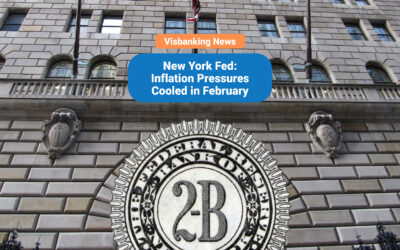The United States Supreme Court has agreed to consider a case involving the constitutionality of the Consumer Financial Protection Bureau’s (CFPB) funding structure. The justices confirmed on Monday that they will hear arguments when the court’s next term begins in October.
The CFPB was created in the aftermath of the 2008 financial crisis with the passage of the Dodd-Frank Act. Its funding bypasses the regular Congressional appropriations process, with the agency receiving its funds through the Federal Reserve.
The case
The case involves a challenge to the CFPB’s Payday Lending Rule. That rule was ostensibly designed to provide greater regulation of payday loans and other high-interest installment lending. It forbids lenders from trying to withdraw payments from customer bank accounts if the first two attempts are unsuccessful.
The Consumer Financial Services Association of America (CFSA) and another trade group filed suit against the CFPB, CFSA et al. v. CFPB, arguing that the Payday Lending Rule was in violation of the Administrative Procedures Act, as well as the Constitution’s separation of powers doctrine and Appropriations Clause.
The ruling
When the case reached the Fifth Circuit Court of Appeals, that court determined that the agency was not in violation of the APA. However, the CFPB’s funding mechanism was found to be unconstitutional. According to the court, the Appropriations Clause of the U.S. Constitution gives the U.S. Congress the exclusive power to determine how federal funds are spent.
Moreover, the court noted that any powers which are delegated by Congress to another branch of government or federal agency must be limited by Congress’ ability to exercise control over funding. This, the court said, was essential to ensure limits on those agencies and the Executive Branch, as required by the Constitution’s separation of powers doctrine.
In short, the Fifth Circuit found that Congress had unconstitutionally given away its duty to control the agency’s funding when it gave it self-funding authority. In the court’s estimation, this scheme effectively made the CFPB unaccountable to the citizens of the United States and their elected representatives. That assessment led the court to declare the Payday Lending Rule null and void, noting:
“Without its unconstitutional funding, the Bureau lacked any other means to promulgate the rule. Plaintiffs were thus harmed by the Bureau’s improper use of unappropriated funds to engage in the rulemaking at issue.”
The CFPB appeal
When the Fifth Circuit handed down its ruling, the CFPB pushed back by alleging that the court’s decision was based on an “unprecedented and erroneous understanding of the Appropriations Clause of the U.S. Congress, which requires government spending to be authorized by Congress.”
According to the agency, the fact that Congress created a “statute explicitly authorizing the CFPB to use a specified amount of funds from a specified source for specified purposes” is sufficient to satisfy that Clause’s requirement. The agency filed a petition in November 2022, asking the high court to review the appellate court decision.
This is not the first time that the justices have been called upon to determine the constitutionality of the CFPB. Another case involving the President of the United State’s authority to fire the head of the agency ended with the court ruling in favor of the Chief Executive’s authority.
The agency has faced criticism from many Republicans in Congress, due to a perceived lack of transparency and resistance to oversight. Last December, House Financial Services Committee chairman Patrick McHenry (R-NC) had told the agency’s director to be prepared for “more thorough oversight” once Republicans took control of the committee.
As news of the Supreme Court’s decision to hear the case broke on Monday, McHenry noted:
“As Republicans have said for years, the CFPB’s unconstitutional funding structure improperly insulates it from Americans’ representatives in Congress.”




